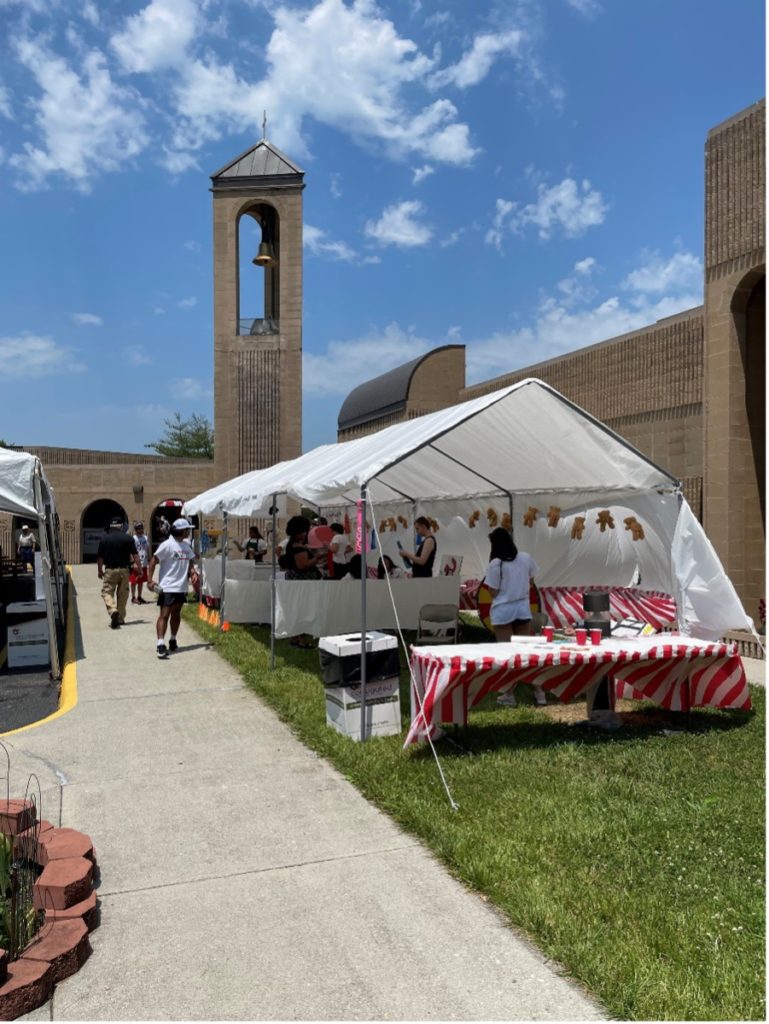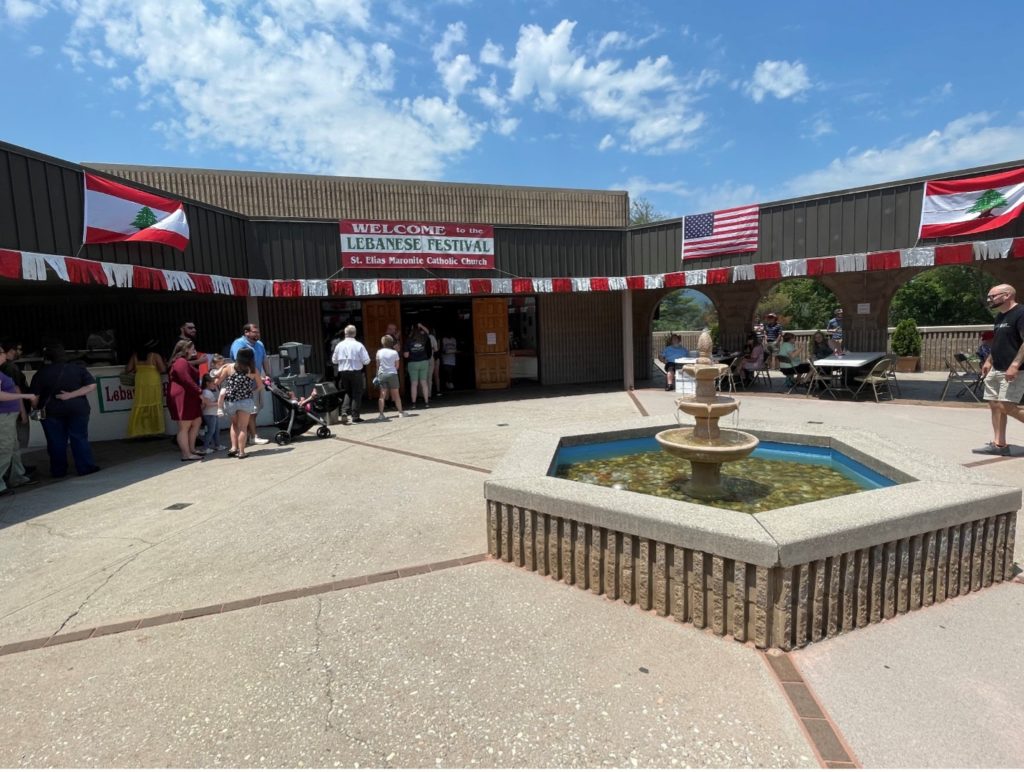“The Maronite Church is an ancient Christian community with a unique spiritual heritage rooted in the Syriac tradition.”
In the spirit of our discussion on the ancient Phoenicians last week, I attended a traditional Lebanese festival over the weekend. The Maronite Church in a neighboring town hosted the event… and the turn-out was great.
Here’s a snapshot of the scene walking in:

Here we can see the walkway lined with tents and vendors. In the background we can see a majestic bell tower. It rises above the beautiful stone walls that encircle the Maronite Church’s campus.
Walking through the arched doorways beneath the bell tower leads to a circular courtyard. It connects the church itself with the dining hall and the office facilities.
A beautiful fountain sits in the middle of the courtyard. And over the weekend this area featured traditional Lebanese music and dance performances.
Here’s a look at the courtyard:

The line we see in the background here led into the dining hall. The church volunteers in there served up some traditional Lebanese dishes. I enjoyed a chicken shawarma wrap with Lebanese-style rice. My kids went for the meat pies. Those were amazing.
As a reminder, the Phoenician civilization centered around modern-day Lebanon. That’s where the Maronite Church originated as well. This is something I didn’t know much about before…
The Maronite Church was founded in the 4th century by a Syriac monk named Maron. Today he’s called Saint Maron.
The Maronite Church is Catholic. But it isn’t beholden to the Pope and the Vatican as the Roman Catholic Church is. Instead, the Maronites are self-governing. They do not recognize some of the decrees that came from the Vatican over the Roman Catholic Church’s history.
What’s more, the Maronites have maintained their own distinct liturgy and traditions over the years. And get this – part of the Maronite mass is still said in Aramaic. That caught my attention.
Aramaic is an ancient language. It dates back to what we believe to be the first human civilizations in Mesopotamia. Jesus of Nazareth would have almost certainly spoken Aramaic. The Maronites point to that as one reason why they seek to preserve the Aramaic part of the liturgy.
I appreciate this effort to preserve ancient culture and history. I think it’s important that we maintain our links to the past.
As such, I’m going to carve out some time to go attend a Maronite mass one day soon. I suspect that will be quite an experience.
Getting back to the festival… I’m happy to report that the spirit of the ancient Phoenicians is alive and well.
If we remember, the Phoenicians were a commercial civilization. They connected the Mediterranean region with parts of Asia, Africa, and Europe via robust trade routes.
And those trade routes weren’t just for the exchange of goods. The routes allowed ideas to spread and cultural exchange to flourish as well. In that sense, the Phoenicians brought people together.
This Lebanese festival certainly did the same thing. There must have been 200 people there when we were. And it was a three-day event. I’ll wager several thousand people attended over the weekend.
And I learned that the Maronite Church uses the revenue it raises from this event to finance its beautiful facilities for the year. That strikes me as a particularly Phoenician thing to do. It’s all about mutual benefit.
Alright, I suppose it’s time to move on from the Phoenicians now. I’m sure some readers are wondering what this kind of talk has to do with the topics of money, finance, and investing that we’re supposed to be covering.
That said, learning about the Maronite tradition has me in an introspective mood this week. Tomorrow I’ll share with you how I came to learn the importance of what economists call second order effects.-Joe Withrow
P.S. We named our new investment membership The Phoenician League partly in honor of the ancient Phoenician civilization. It’s all about the free flow of information and mutual collaboration.
What’s more, The Phoenician League connects members with specific investments across a range of asset classes.
In fact, we help members build a customized asset allocation model. We maintain a core equity portfolio. And we get members plugged into investments that generate passive income immediately. Our goal is to help everyone achieve financial independence in six to twelve years’ time.
If this sounds like it may be something that’s up your alley, I’d like to invite you to join our membership’s wait list. You can do so right here: The Phoenician League Waiting List
We’ll be opening our doors to new members for just the third time very soon…